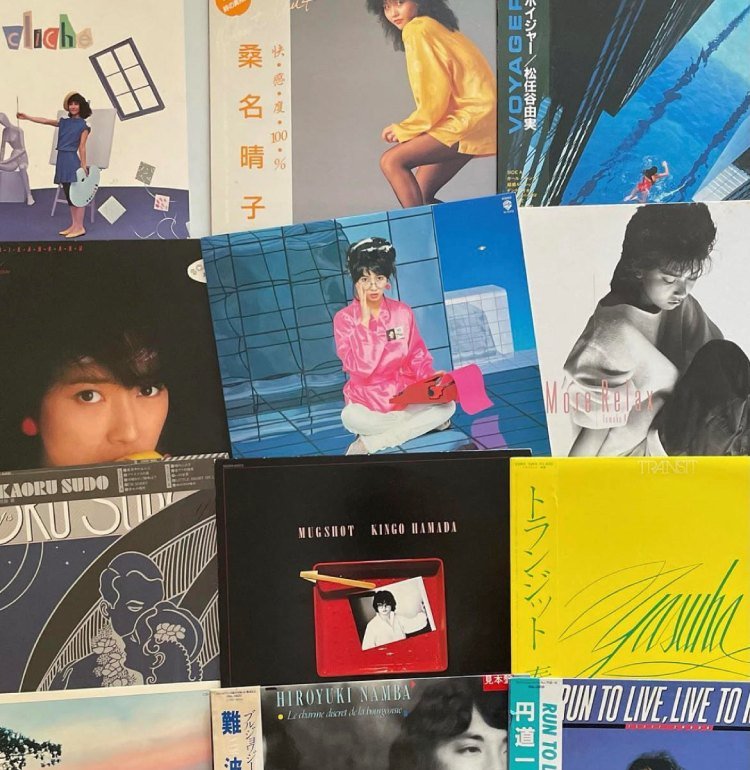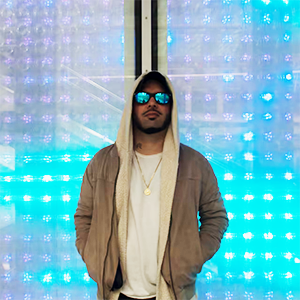Why We Like Collecting City Pop Vinyl in 2022
Credit: Ears of the Beholder via IG
Why We Like Collecting City Pop Vinyl in 2022
City Pop vinyl is extremely collectable because of certain factors, mainly that LPs have always been sought after collector’s items, and also fans of Japanese culture are usually innately collectors of things like figurines, cards, and manga among other things. The tendency was already there, it just needed a shove in the right direction. Humans like to collect things, this much is definitely true. Anything that can be collected, will be collected. City Pop is a relatively well-known genre today thanks to the popularity of artists like Tatsuro Yamashita, Mariya Takeuchi, and Miki Matsubara, that shows no sign of slowing down in terms of cross-cultural fascination. It has recently entered popular culture again with collectors trying desperately to obtain rare records. The amount of money these City Pop records have generated on vinyl buying websites in recent times has sent shock waves through the internet and has drawn the attention of fans and non-fans alike to the once-obscure style of music from the late 70s and early 80s Japanese music scene. In this article, we will discuss this craze and why people are collecting City Pop Vinyl in 2022.
A Brief History of City Pop
City Pop was first coined in the early 2000s by major recording labels like Columbia Music Entertainment, marketing with a broader definition of the style than how it’s viewed today, as a specific sound that at its heart was a form of Kayo-Kyoku, or “New Music”, that was mostly produced from about 1975-1985. It was a genre defined by its ties to western influences, the Japanese economy, metropolitan lifestyles, and quality production techniques. It wasn’t long before the genre faded once the economic bubble popped going into the 90s and Japanese audiences’ tastes for the style waned as other styles became more popular with younger audiences that felt no connection to the era in which City Pop was prevalent. North American audiences did not get a full taste of the genre until decades later when it was re-popularized by online DJs on YouTube (like myself), and music bloggers reviewing loads of albums, songs, and artists.
In the late ’10s and early 2020s, music producers, vintage vinyl lovers, and fans of Japanese culture began forming collectives online to discuss, review, and purchase City Pop records. Collecting rare Japanese vinyl was especially popular among enthusiasts of vintage Jazz, Funk, Disco, and related genres also. The act of buying and exchanging City Pop vinyl was a satisfying and obsessive pastime for a lot of fans. This craze substantially sped up as the labels who owned the rights to these classic records started allowing some hard-to-find vinyl to get re-released in limited numbers for fans which allowed for the collector’s game to gain momentum. Mariya Takeuchi’s 30th Anniversary Edition repress of Variety in 2014 is said to have started the re-press flood that would happen in later years. Today, record labels are more aware than ever that the music style is in popular demand and regularly release old albums wanted by fans worldwide, often selling out quickly.
The City Pop Vinyl Craze and Scarcity Hype
The year 2021 was a weird year, and that’s putting it lightly. It was the year the we received the coronavirus vaccine, lock-downs were slowly relaxing, and working from home became the preferred way to be employed. 2021 is also the year City Pop was starting to really find a new kind of popularity; not because of how great the music is but rather how much you could earn by investing in rare records that were difficult to obtain. Certain records were selling at insane prices upwards of hundreds of dollars, and even still being purchased regardless of cost, which brought a spotlight to this niche community from entrepreneurial-minded sellers who saw profit in buying to retail later, driving prices up across the board. Discogs dealt with high sales volumes of City Pop records, even allowing for the style to have its own category marker for buyers to find the records easily, which hadn’t existed prior to 2021.
A listing for Junko Ohashi’s fabled compilation ‘Magical’ once sold for over a thousand dollars, predicted by an article on the topic written by me a year prior, signaling a bullish outlook for many investors in vinyl records that this City Pop craze was just beginning. Even though Magical had been re-released, the original was still selling for high prices. The hype also attracted a new set of people who wanted to resell these records; scalpers, usually, record shops who would buy crates of Japanese vinyl for cheap and resell them for prices that yielded huge gains by up-charging newbies. They usually knew nothing about the genre but wanted to benefit from the hype, and who could blame them? They emptied Japanese record store shelves and hoarded vinyl, believing they would increase in value and thus make them more money once they went on sale. Fast-forward to 2022, and everything they thought about price inflation was right.
The Role of the Pandemic
Some people credit the pandemic with fueling the City Pop craze of 2020. The nostalgia of the music, coupled with the boredom of being forced to stay home with nowhere to go may have made City Pop vinyl travel from its once niche corner into popularity across the planet. Many people had more free time, and an increase in time spent on social media platforms like YouTube, Twitch, Twitter, and Facebook, which were already seeing an increasing amount of City Pop posting becoming normal. Various subreddits devoted to City Pop developed during the time, and Instagram hashtags carrying City Pop in their names were blowing up, further adding to the allure of the genre as social proof of the City Pop aesthetic became very visible. Anticipating mail-day packages containing recent vinyl purchases was always a well-liked thread wherever posted.
Content creators became aware that there was definitely space in this niche to blossom, becoming a huge source of entertainment and developing all kinds of online activities in chat rooms like Discord, and lesser-known streaming services where the music could play 24/7 or broadcast live DJ sets. Buying and selling Japanese vinyl records and showcasing them being played on record players in various environments appealed to many, allowing for owners of these rare gems to showcase their collections. Those drawn to this were not usually Japanese, who sometimes don’t even know about the genre, but people overseas with varying degrees of Japanese language comprehension only tied together by a love of the music or desire to collect. This era helped solidify collecting City Pop vinyl as a legitimate hobby, and created the perfect atmosphere for the City Pop craze to take root all over the world.
Typical #CityPop hashtag page on IG
The Future of City Pop Vinyl
Long before the hype, collecting vinyl records has always been niche-specific to their relevant fan-base community. So, even if there is a slow down in hype from non-fans of the style, that doesn’t mean people aren’t still making a lot of money by reselling City Pop vinyl to die-hard fans. Record labels continue to re-release classic vinyl that has been extremely difficult to find, allowing for collectors to fill their shelves with LPs that seemed impossible to get their hands on just a few years back. There are communities dedicated to City Pop vinyl now, even teaching interested beginners how to find and to buy these magical objects, (Even I have an article on how to find City Pop vinyl in Tokyo.)
City Pop is a worldwide phenomenon that celebrates Japanese Culture, Nostalgia, and Far Eastern aesthetics in a way that is new for many people, It’s unlikely that the popularity of the style or the interest will die off any time soon. The continuous re-release of these LPs means there will still be people who will always try to collect them. Collecting vinyl can be a fun hobby to invest your time and money in if you are a fan of the music. You can support the genre by joining a community, where you’ll no doubt be schooled on everything related to the style, or you can come to one of my shows where I play the vinyl live for you to enjoy. If you want to make some money off your collection, you may have to spend a bit more than usual by collecting new releases and storing them; who knows how much they will go for in another 10 years.
AUTHOR
Van Paugam is an Internationally-Acclaimed DJ and leading figure specializing in 70s and 80s Japanese Music, dubbed City Pop. He has organized and hosted over 100 events dedicated to the style, and actively promotes Japanese culture while on the board of the Japanese Arts Foundation of Chicago. He has been featured on CNN, NHK, and many other publications for his dedication to City Pop. Van is credited with being the first person to begin popularizing City Pop online through his mixes on YouTube in 2016, and subsequently through live events. Learn More…





![Tomoko Aran - Fuyu Kukan [2024 Reissue]](https://images.squarespace-cdn.com/content/v1/5bd7707c11f7847c45b4b9dd/1689118417870-VK5509S75OAQ8XLR9TEG/ab67616d0000b273138d0143d948a5314d1aea19.jpg)
![Kingo Hamada - Midnight Cruisin' [Reissue]](https://images.squarespace-cdn.com/content/v1/5bd7707c11f7847c45b4b9dd/70b59ba1-850e-4a6d-a827-34e221a172bf/WQJL-159.jpg)
![Mioko Yamaguchi - Tsukihime Moonlight [Reissue]](https://images.squarespace-cdn.com/content/v1/5bd7707c11f7847c45b4b9dd/1688493110328-NTAQQVZ245PY48X3I6H4/MHJL-278.jpg)
![Yurie Kokubu - Steps [Reissue]](https://images.squarespace-cdn.com/content/v1/5bd7707c11f7847c45b4b9dd/1688492253619-240QYD9A83G0GLRKQ08U/MHJL-282.jpg)
![Anri - Natsu Ban [New EP]](https://images.squarespace-cdn.com/content/v1/5bd7707c11f7847c45b4b9dd/1687905964336-9PV1QDIP2YNMEKDHS14R/Screenshot+2023-06-27+174101.png)
![Anri - COOOL [Reissue]](https://images.squarespace-cdn.com/content/v1/5bd7707c11f7847c45b4b9dd/1682575601801-C2BEL9RM2RUHJS9OBSL1/ab67616d0000b27339b329eaf36f09af3c2356f4.jpg)
![Anri - Timely!! [Reissue]](https://images.squarespace-cdn.com/content/v1/5bd7707c11f7847c45b4b9dd/1682575330424-OPVMZCJ0GUYHW6P0X5UT/R-5126669-1638115528-6607.jpg)
![Anri - Heaven Beach [Reissue]](https://images.squarespace-cdn.com/content/v1/5bd7707c11f7847c45b4b9dd/1682574623734-QWHWV5NQSM71KRKK8K6G/R-4777778-1618165602-9892.jpg)
![Anri - Bi Ki Ni [Reissue]](https://images.squarespace-cdn.com/content/v1/5bd7707c11f7847c45b4b9dd/1682575025867-NBUJHCR4R997RWTHJ71K/R-6161494-1640871595-6430.jpg)
![Miki Matsubara - Pocket Park [Reissue]](https://images.squarespace-cdn.com/content/v1/5bd7707c11f7847c45b4b9dd/1682919786676-RDDRQMQ80QIJP8SD61JS/IMG_8996.jpeg)
![Miki Matsubara - Who Are You [Reissue]](https://images.squarespace-cdn.com/content/v1/5bd7707c11f7847c45b4b9dd/1682919471387-FEXQME3R87Z0GGN8OM30/IMG_8995.jpeg)
![Taeko Ohnuki - Mignonne [Reissue]](https://images.squarespace-cdn.com/content/v1/5bd7707c11f7847c45b4b9dd/1677631540050-MB8QQ48ZP5NKH0P9F61Z/31qFb8S%2BGKL.jpg)
![Tatsuro Yamashita - Go Ahead [Reissue]](https://images.squarespace-cdn.com/content/v1/5bd7707c11f7847c45b4b9dd/1677630549318-VK4691LKREAD8ILYCDTG/BVJL-93.jpg)
![Yurie Kokubu - Relief 72 Hours [Reissue]](https://images.squarespace-cdn.com/content/v1/5bd7707c11f7847c45b4b9dd/1677629440079-6RWRK2ZWERH37N9Y30KE/%E5%9B%BD%E5%88%86%E5%8F%8B%E9%87%8C%E6%81%B5-yurie-kokubu-relief-72-hours-Cover-Art.jpg)
![Momoko Kikuchi - Tropic of Capricorn [Reissue]](https://images.squarespace-cdn.com/content/v1/5bd7707c11f7847c45b4b9dd/1674797802522-6G0J6KOSVEHW51M7EIWH/Tropic+of+Capricorn.jpg)
![Momoko Kikuchi - Ocean Side [Reissue]](https://images.squarespace-cdn.com/content/v1/5bd7707c11f7847c45b4b9dd/1674798147688-5U1MW4DHPF1JJCB97Q5Z/Ocean+Side.jpg)
![Momoko Kikuchi - Escape From Dimension [Reissue]](https://images.squarespace-cdn.com/content/v1/5bd7707c11f7847c45b4b9dd/1674797753044-X7EKMKXREYA8ZSZD1DAA/escape+from+dimension.jpg)
![Momoko Kikuchi - Adventure [Reissue]](https://images.squarespace-cdn.com/content/v1/5bd7707c11f7847c45b4b9dd/1674797693224-VN0M90A8BM9LPTYWBSB5/Adventure.jpg)
![Hitomi Tohyama - Imagination [Reissue]](https://images.squarespace-cdn.com/content/v1/5bd7707c11f7847c45b4b9dd/1674797015412-B47AFOTZHWA2CO5BUMAA/Imagination.jpg)
![Hitomi Tohyama - Sexy Robot [Reissue]](https://images.squarespace-cdn.com/content/v1/5bd7707c11f7847c45b4b9dd/1674714815791-4KT0NM9S4ED18FLQKHKC/sexy+robot.jpg)
![Tatsuro Yamashita - Greatest Hits [Reissue]](https://images.squarespace-cdn.com/content/v1/5bd7707c11f7847c45b4b9dd/1674713862344-KZQM2GX3TF0Y8XODXT1P/R-3282359-1533691121-1914.jpg)
![Tatsuro Yamashita - For You [Re-Press]](https://images.squarespace-cdn.com/content/v1/5bd7707c11f7847c45b4b9dd/1674713532165-3F6PUTT1U16F9RKFDKCQ/R-2179374-1576817857-6649.jpg)
![Tatsuro Yamashita - Ride On Time [Reissue]](https://images.squarespace-cdn.com/content/v1/5bd7707c11f7847c45b4b9dd/1674713298310-CX7AAYGDCK9VRC09V8F7/R-3282392-1341996717-7068.jpg)
![Tatsuro Yamashita - Moonglow [Reissue]](https://images.squarespace-cdn.com/content/v1/5bd7707c11f7847c45b4b9dd/1674712985847-GAAP57FYG3W34MT0KX6Z/R-2063296-1594137375-1639.jpg)
![Tatsuro Yamashita - It's A Poppin' Time [Re-Press]](https://images.squarespace-cdn.com/content/v1/5bd7707c11f7847c45b4b9dd/1674711577552-6OG8AHZTL0A0VMOFACE6/R-5223079-1601375868-4345.jpg)
![Tatsuro Yamashita - Spacy [Reissue]](https://images.squarespace-cdn.com/content/v1/5bd7707c11f7847c45b4b9dd/1674711439752-GP5PA47QCYGU14Q1F8I9/R-1006498-1322902455.jpg)
![Tatsuro Yamashita - Circus Town [Reissue]](https://images.squarespace-cdn.com/content/v1/5bd7707c11f7847c45b4b9dd/1674710622935-WAUHPKKQAQSUPFH8NC0G/BVJL-95.jpg)





They say things only cost what people are willing to pay and nothing embodies the spirit of that saying more than a very elusive and revered album by a 1980s Japanese singer named Junko Ohashi. We explore why this album specifically has garnered almost a holy grail status among fans of the genre and how City Pop records are becoming cult objects.